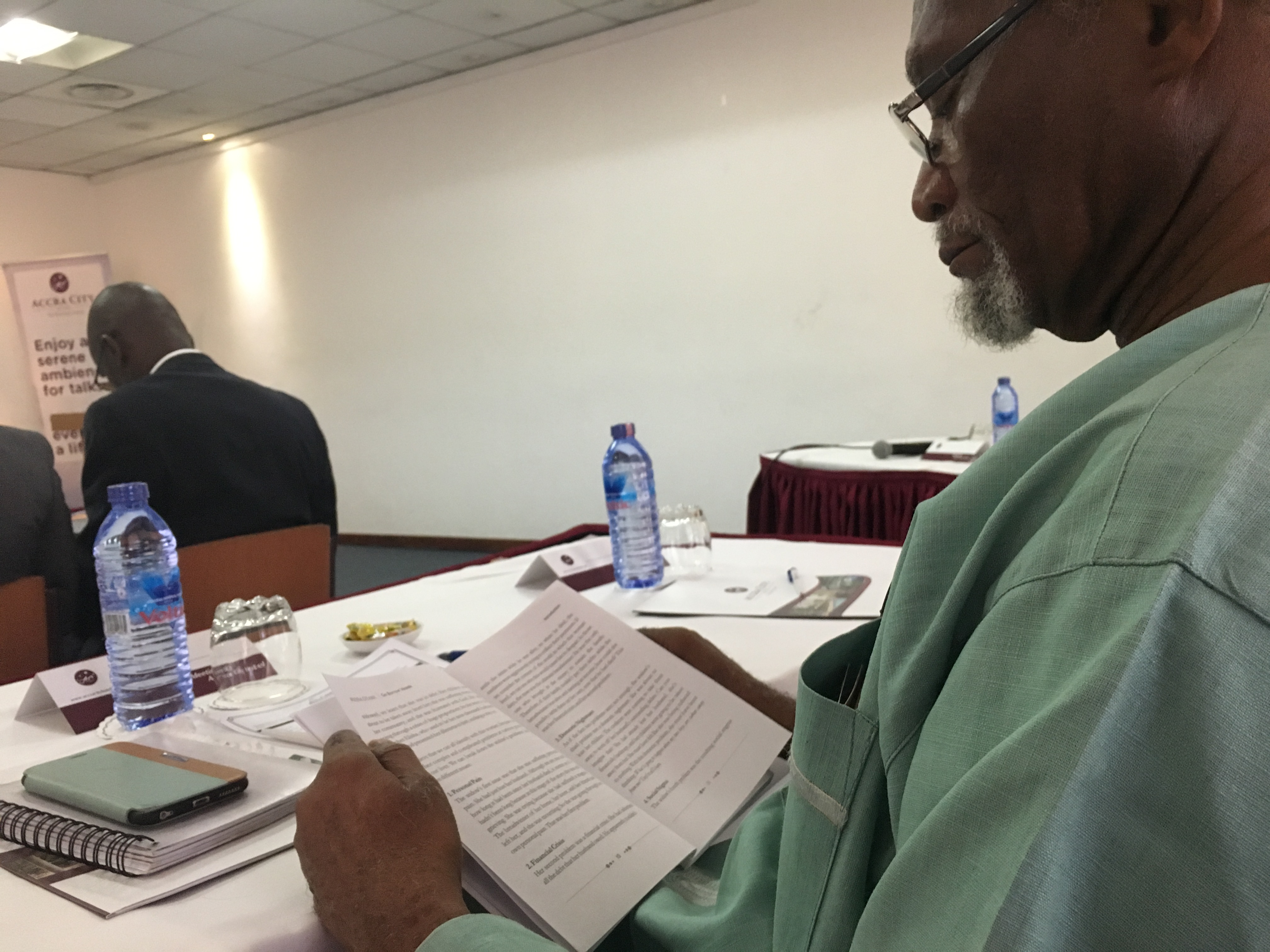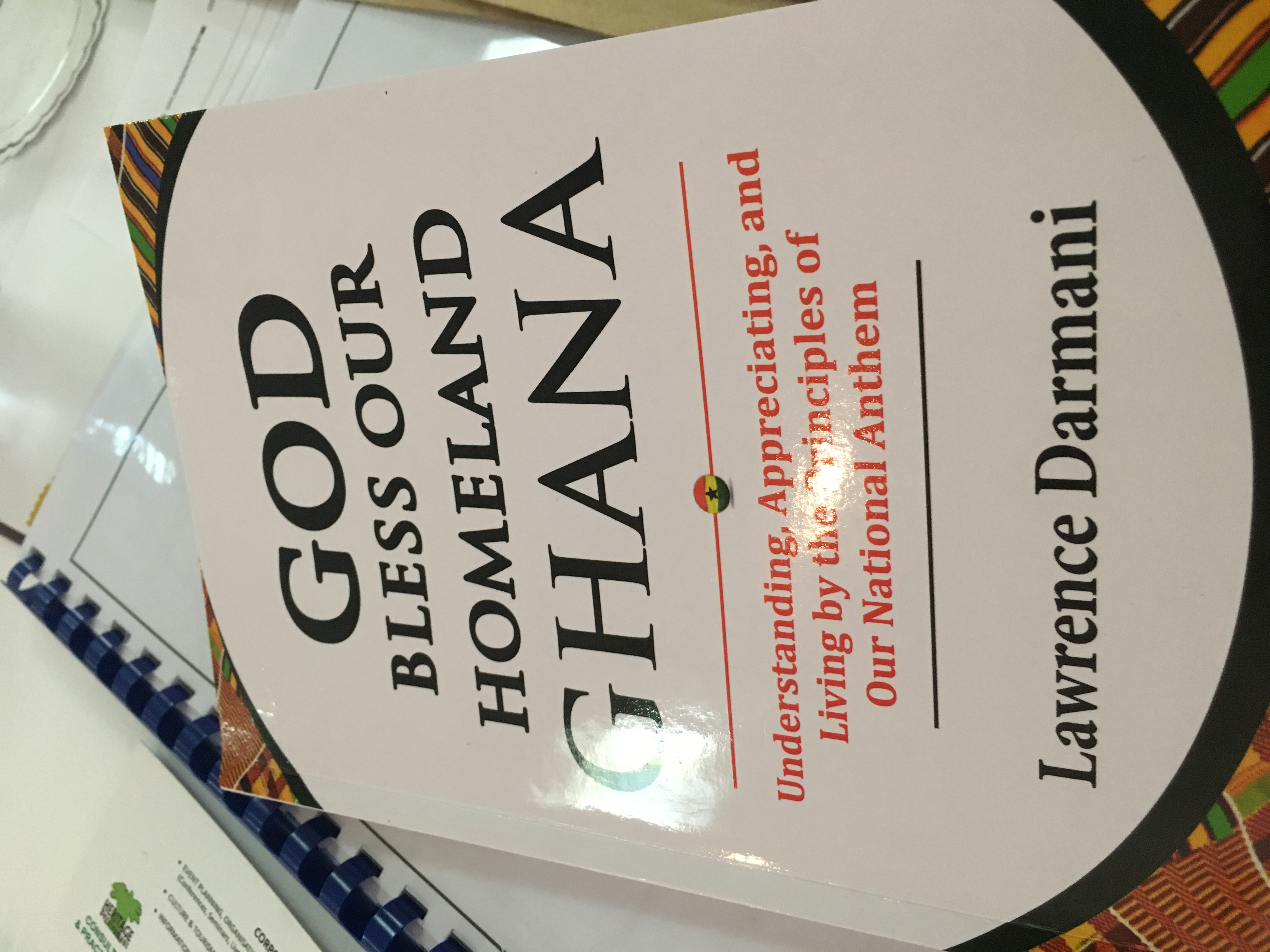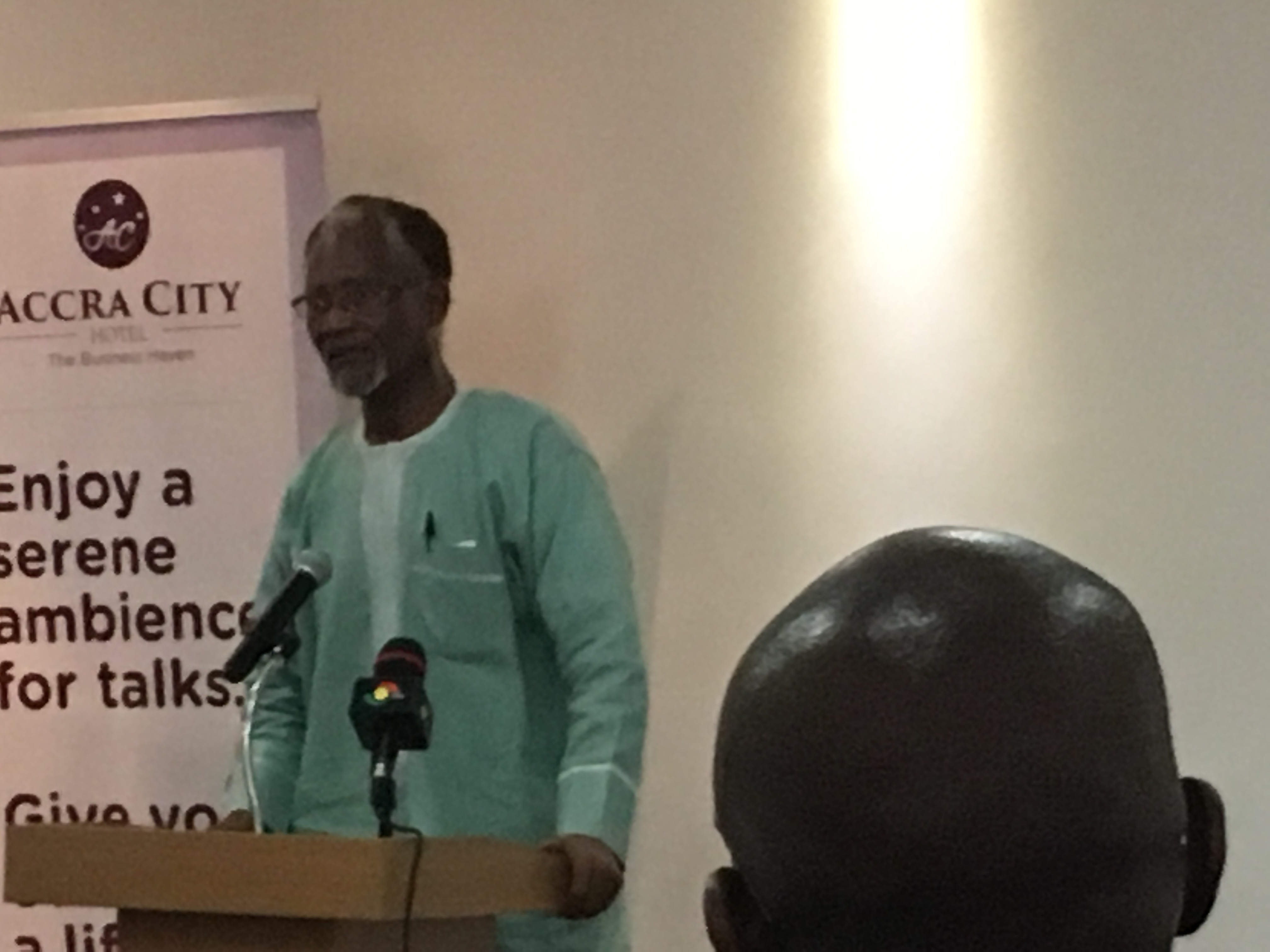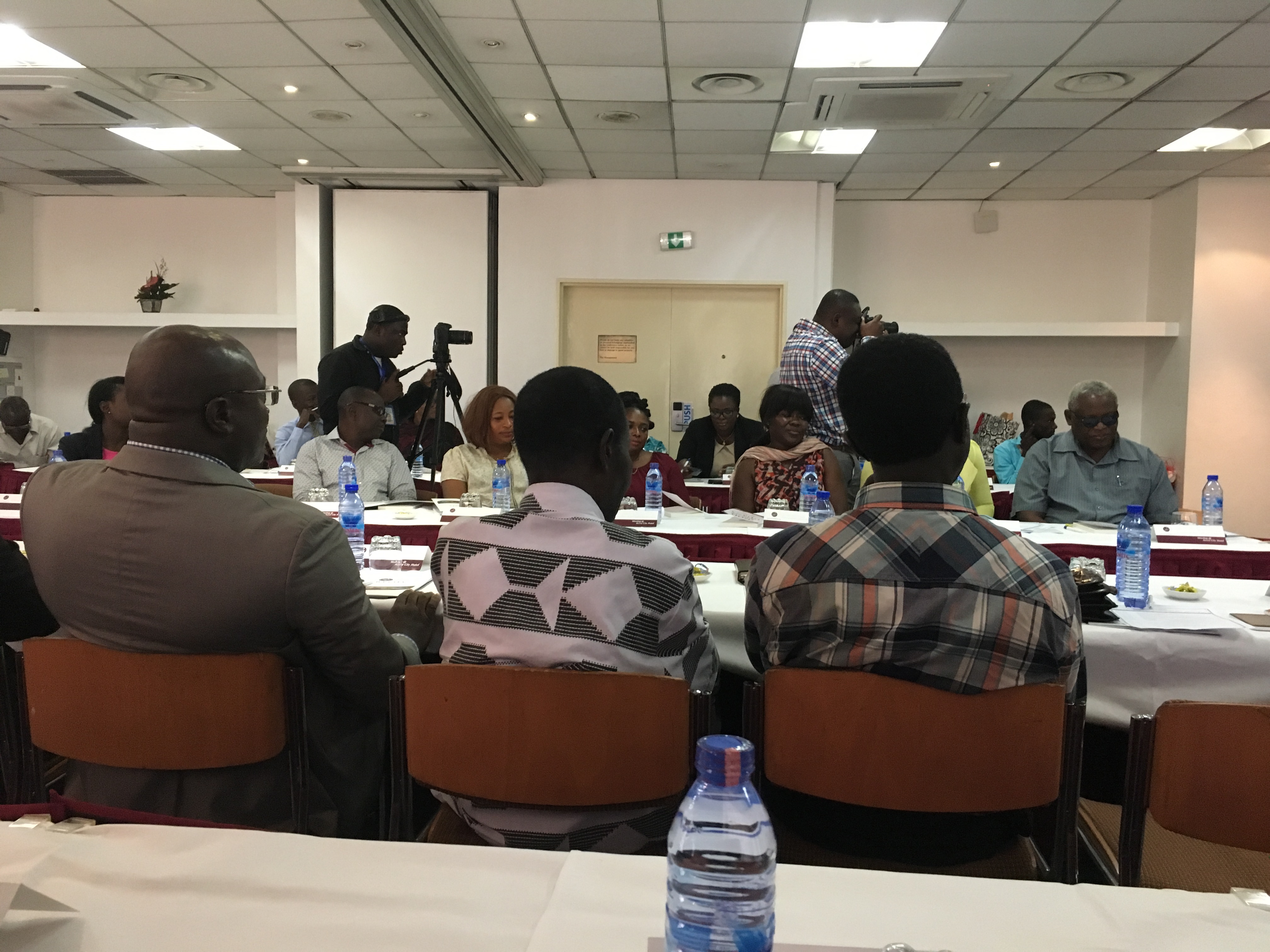Yes we can guarantee the future of the textbook publishing industry for the next generation – but it requires a paradigm shift
This a keynote address I gave at the Ghana Book Publishers Association AGM on the 18th of October, 2016. I spoke from the heart as always and I spoke for Ghana, for the generation unborn. I understand that some of the members thought that I ‘biagya‘ to wit opened fire. I am sorry if anybody felt hurt, but I believe that I spoke the truth and for that I do not aplogise at all. We were there to chart the path for the future and for that we all needed a paradigm shift. We all need to sacrifice for Ghana to be great again. The self hatred of Ghanaians by Ghanaians should stop. It is not about the leaders only, we the lead to have to change our ways.
I started with a quote from the Legendary Prof Attuquaye Okai, the Lorgorligi Logarithms man. This is something he shared with me minutes before the start if the programme
“If this country (Ghana) should continue not reading then, we will be burying ourself alive”

I thank the organisers for the opportunity to share my view on the rather intriguing question whether we can guarantee the future of the textbook publishing industry for the next generation.
I think yes, we can, but we will have to surmount the challenges the industry faces at the moment. This calls for a concerted effort by all stakeholders to build the industry to the state where it can deliver its full benefits to those in the industry and the economy as a whole.
High cost of publishing
The challenge that attracts my attention first is the cost of publishing in the country. This still remains high, compared to other countries such as India and China. I acknowledge that in response to request by publishers, printers and other related industries, the government is giving positive signs of tax reduction to bring printing cost down, which will reduce publishing cost too. However, the state can do more in that regard.
At the moment, it is only VAT on paper for textbook printing that has been removed.
However, it is also important to recognise that the raw materials needed to produce textbooks are more than paper. Inks and plates are also part of the raw materials, so though the cost of printing papers may go down as a result of the VAT removal, other components of the raw materials that attract tax may make printing cost high to publishers.

This makes textbooks publishing still expensive in Ghana. A conservative comparison between the unit cost of an average social studies textbook, black and white, 300 pages printed in China and Ghana suggests a 100 per cent lower unit cost for the publisher who takes his job to China. This is a major challenge that still needs redress. The government should go the full length to remove the bottlenecks to give publishers more breathing space.
Mr/Madam chairperson, I think it is in the interest of the State to bring down the cost of publishing in order to force down the price of textbooks. The government, by policy, seeks to help the local publishing industry to grow by giving publishers business. If the government keeps strictly to the policy, it simply means it will procure all its textbooks from local publishers. A lower cost of publishing, therefore, will benefit the government itself as the biggest buyer of textbooks in the country, because it will spend less to purchase the books.
I know people ask about the revenue loss, but I think they should look at savings in book purchases to the government and the potential jobs that a thriving publishing industry can generate for the economy.
At the moment, the effect of this high cost of publishing is that it restricts the ability of publishing companies to expand to create more jobs for the teaming unemployed youths of the country.
Publishers’ appetite for foreign printers
Dealing with this high cost has, therefore, become the excuse for Ghanaian publishers to take their books for printing in China, India and the like. But is this the way to go if the publishing industry wants to gain real relevance to the economy and make a stronger case for the State to take it seriously when it demands incentives? No, I humbly submit.
My reason is simple: that approach hurts the economy and will hurt the publishing industry in the long run, because the real value anybody can put on the industry will also be measured by the number of jobs it creates and how it impacts on the GDP of the country. In that regard, direct employment alone is not enough. Indirect jobs through the business publishers give to printing companies to support them to also expand and create more jobs will add to the value of the publishing industry to the economy. This will make any government take the industry more seriously and help to build it.

If publishers ignore this implication and take the printing jobs outside the country, they create jobs in that country. This means job loss to our economy as printers are denied jobs. That country’s revenue from taxes, both corporate and individual increases and we lose.. It also means pressure on foreign exchange and a weakening of the cedi because publishers need the dollar or the euro for their foreign transactions. If these things affect the economy, business will suffer, and that includes publishing.
Another effect of printing jobs outside is that the huge volumes publishers take there has invited foreign competition for them right here on the local market. Foreign publishers have impression that there is a huge market here, so these days you find Indian published books on our market. That’s how it starts and then foreigners begin to control the publishing industry too.
Aside from that, the cultural orientations of the authors are different from the Ghanaian culture and may influence our children into some cultural identity crisis.
I think publishers should keep their printing jobs for local printers. This will help local printers to expand and create more jobs as indirect employment from publishing. The aggregate of jobs directly from publishing, printing and allied services such as bookselling can make the appropriate impact enough to make a case for the economic importance of the publishing industry. I know it will not be easy because it is cheaper to print outside, so you will lose some of your profit, but I believe it is in the interest of publishers to make this necessary sacrifice in order to win the battle for a good publishing environment.
One more challenge that needs attention is the poor reading habit among the people. Though this challenge does not directly affect the textbook business because that has a market that must by all means use textbooks, it is still relevant because it negatively affects publishing income other than textbook income. Other publications such as fiction and supplementary readers will get a boost if reading habit improves.
In fact, part of the reasons why the publishing industry in India is booming is that the population that reads is high.

According to “Perspectives on Publishing in India (2014-1015),” a publication by Frankfurter Buchmesse, a survey of the Indian population in 2010 indicated that a whopping 83 million youths were book readers. That is more than three times the entire population of Ghana, going by the last census. Clearly, publishing will thrive in such a country. What can we do as a country and publishers to improve reading in the country?
Importance of the textbook publishing industry
But, ladies and gentlemen, how important is the textbook publishing industry to any economy to the extent that any government should seek to develop it? The cases of two countries, India and New Zealand should suffice to point to how economically relevant the publishing industry is, if given the right environment to develop.
The “Perspectives on Publishing in India,” already cited, puts “The value of the Indian publishing industry in 2012 at USD 2 Billion with an overall growth of around 15%.” In the case of New Zealand, a final report on the “Economic Contribution of the New Zealand Publishing Industry (June 2014)” by Pricewaterhouse Coopers (PWC) gives the following statistics.
The publishing industry’s estimated revenue from direct sales was $330 million. If revenues from related businesses such as booksellers are accounted for, the figure increases to $382 million.
The industry also created 5,160 jobs for country.
The lesson from these cases is that Ghana stands to benefit hugely, if the government gives a more serious attention to the publishing industry. As it stands, my opinion is that a lot more has to be done for the industry.
Hope
Mr/Madam chairperson, in spite of the challenges of the publishing industry, I am hopeful that the industry has a good future in this economy.
The government has shown some commitment to dealing with some of the challenges. Recently, in the September 18 edition of the Daily Graphic, the Ghana Printers and Paper Conversion Association published a 12 per cent reduction of the prices of exercise books, notebooks and textbooks as a result of the VAT waiver on paper raw material, with the promise that a further reduction would happen if the five per cent import duty is removed. This gives me hope that if the publishing industry joins forces with allied industries and continues to push, the government will create the enabling environment for it to grow.
It is also important to note that the government has begun to implement its local content policy by printing all its textbook requirements locally. This is welcoming because the government is the single largest purchaser of textbooks in the country. My humble prayer is that the tendering process should always be transparent and not lead to acrimony among publishers. Bidders must win or lose fairly based on the criteria as set out in the Ministry of Education’s Textbook Development and Distribution Policy for Pre-tertiary Education.
The local content policy holds great promise for the publishing industry, if it is put in the context of the country’s Education Strategic Plan, which aims to achieve a ratio of 1:1 core subject textbook for every child from primary to JHS and the same ratio for critical textbooks for SHS. It means a lot of textbook procurement because we are yet to hit this target. The publishing industry has a future in this.
The sustenance of the local content policy for textbook procurement will certainly help to develop the publishing industry.
As indicated in the policy, at least at a minimum of five years, a syllabus may be revised. This will mean an opportunity for new tendering and new life for the publishing industry as cash will be injected into it.
I wish to suggest that the government provides a clear timetable of procurement, so that publishers can prepare towards it for bidding. For, example, if revision and tendering are every five years, let it be clear to aid planning by publishers.

I also find soothing the approach of aggressive marketing of books being canvassed. I know that publishers themselves are urging their fellows to give serious thought to e-book as another marketing avenue to improve book sales. I urge publishers to pursue this strategy vigorously because it takes books to a worldwide market.
I deliberately left out from my list of challenges the youth’s shift from reading hard copy books and other reading materials to reading from digital platforms because I do not see that as a threat to publishing. In fact, I believe it is rather an opportunity for publishers to expand their market, so that a book by Ghanaian author can be bought and read even by Fijians in Fiji.
This is very critical because as far back as 2004, Prof. Atukwei Okai identified lack of aggressive marketing as a bane of writers, which means the publishing industry was not being creative with sales strategy.
Again, there are young writers coming up. Some of them write very good short stories for publication in newspapers. The Mirror and the Graphic Showbiz publish stories from a number of these budding authors. They are sources of hope and continuity for the publishing industry, because without good authors, publishing dies.
But a lot also depends on publishers themselves to promote the industry. For example, the challenge of poor reading habit lies within the reach of publishers to deal with in the interest of the publishing industry.
I propose that publishers set up a fund for promoting reading in the country. They could go into creating rural libraries and donating reading books to reading clubs. Can anyone imagine what will happen to the publishing industry in Ghana if even 15 million people were active book readers?
To conclude, ladies and gentlemen, all I have tried to do is to say that though the publishing industry faces challenges, they are not enough to kill it because they are surmountable. We can surely guarantee the publishing industry for the next generation.
This post has already been read 1294 times!








2 comments